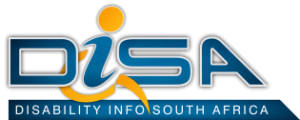Contents: To jump to the topic you would like, click on the links below
Introduction
Deaf rugby players have been playing since the game first started to be played. A South African deaf rugby team first competed internationally back in 1995, when they toured New Zealand and beat the hosts 2-1 in a three-match series.
The South African Deaf Rugby Union (SADRU). Just like their able-bodied counterparts, the Springboks are aiming to be the best in the world.
Tournaments include The Deaf Rugby World Cup & The World Deaf rugby Championship, as well as hosting and taking part in international tours to England, Wales, New Zealand, etc.
SADRU
Despite having a history stretching back to 1998, when South Africa was one of five countries to form the International Deaf Rugby Organisation, SADRU only started to establish itself in 2007, when Tim Stones and Vernon Vice took over the leadership of the organisation. It was founded by Tim Stones and Vernon Vice in September 2007 in Worcester.
Together, they updated and compiled the constitution, made contact with various role players within the South African Rugby Union (SARU), including CEO Jurie Roux, and generally laid the administrative groundwork that the union required to exist and gain official recognition.
In March 2014, all 14 provincial unions voted to recognise SADRU as South Africa’s official deaf rugby union. Together with the assistance from the England Deaf Rugby Union, deaf rights activist Braam Jordaan and former Miss Deaf South Africa Shelley Buckle, SADRU managed to grow a player base.
The South African Deaf Rugby Union (SADRU), a rugby squad that celebrates rugby as a sport and encourages those with hearing impairments to take part in the game, their vision is to bring awareness to the deaf community as a whole through sport and to provide opportunities to those who have been suppressed due to a misconception of ability.
The South African Deaf Rugby Union is focused on becoming World Deaf Rugby Champions in 2016. "Our long term aim is to have rugby available to all deaf schools."
"Presently SADRU is the only active team in South Africa and the hope of thousands of deaf individuals in South Africa rests on our shoulders." They accommodate all who would like to participate and offer coaching and guidance in terms of competing in the deaf sport world as a whole.
"National trials are held prior to the tests. Verified club players from across the country are invited to attend. We’re now in the process of setting up provincial squads with an aim to setting up an interprovincial competition so that the national coaches and selection panel can get a better idea of how players perform over time."
Shelley Buckle, a former Miss Deaf SA leads up our Women’s Rugby portfolio, tasked with promoting the game among deaf women, and serving as the liaison between deaf women who would like to take up Rugby; Shelley also forms part of the executive committee in the above capacity.
How does deaf rugby work?
In order to qualify as an official deaf player, you need to have 25 decibels (DB) bilateral hearing loss across the major frequencies. Essentially, this is a moderate to severe hearing loss in one or both ears. A normal conversation takes place at a level of around 60DB, so if you struggle to hear regular conversations, it’s worth getting tested.
There are only a few minor law structures in place to accommodate deaf rugby players. The flow of the game remains the same. They rely on body language and visual cues when it comes to refereeing calls, but often, all it takes is one player seeing the referee stopping play. The rest pick up on it very quickly.
The major difference from a refereeing perspective will come in the scrum calls as the official uses hand signals. An open palm below the front row signals crouch. A closed fist signals bind, while a pull of the arm from under the scrum signals engage, and completes the sequence. Most deaf players can lip-read, so communication isn’t a major problem.
The player’s play on instinct, so switch passes and dummy runs require an innate degree of trust and perception that don’t think exists at the same level in the hearing game.
Contact Them
If you would like to get hold of them, you can contact the Rachelle, who is the secretary of SADRU on her e-mail at: rachelle@deafsportinstitutesa.co.za or contact her on her cellphone at: 063 174 2568. You can also follow them on Facebook at: www.facebook.com/SADeafRugby/ or alternatively you can follow them on Twitter at: https://twitter.com/sadeafrugby or you can visit their website at: www.sadru.co.za (please note that their website is currently under construction, so contact them on the details above if you have any questions.)
References


